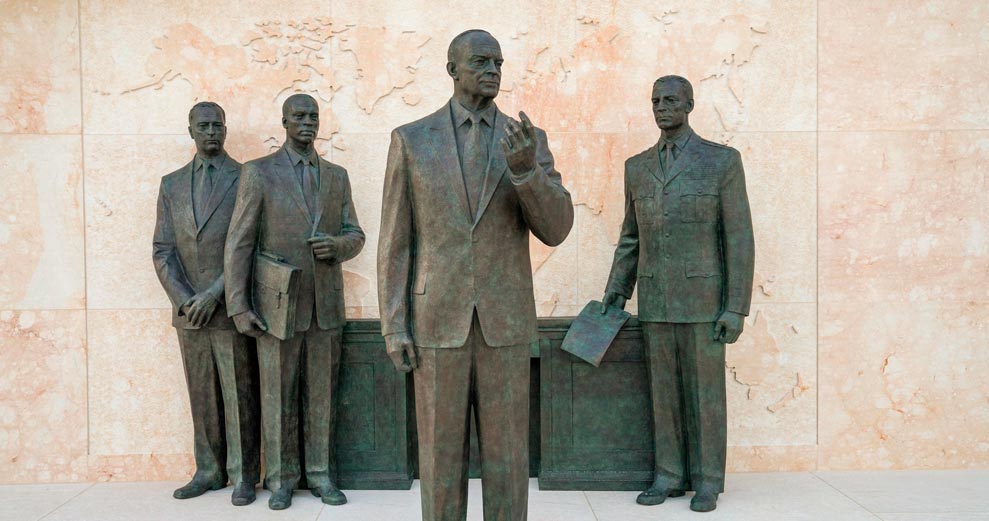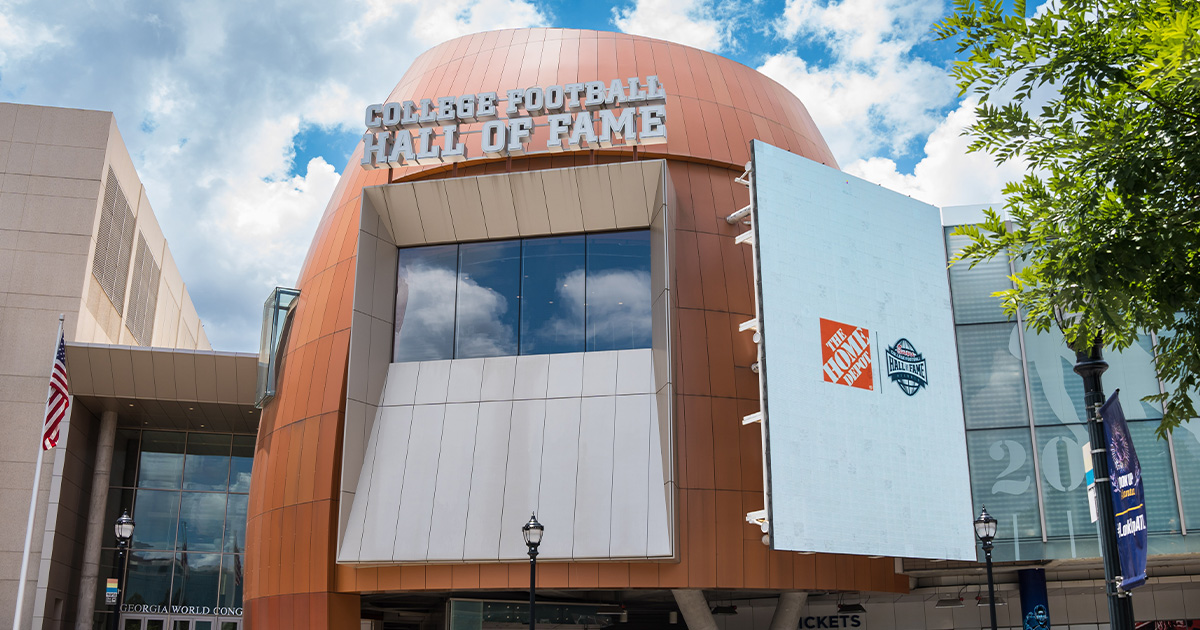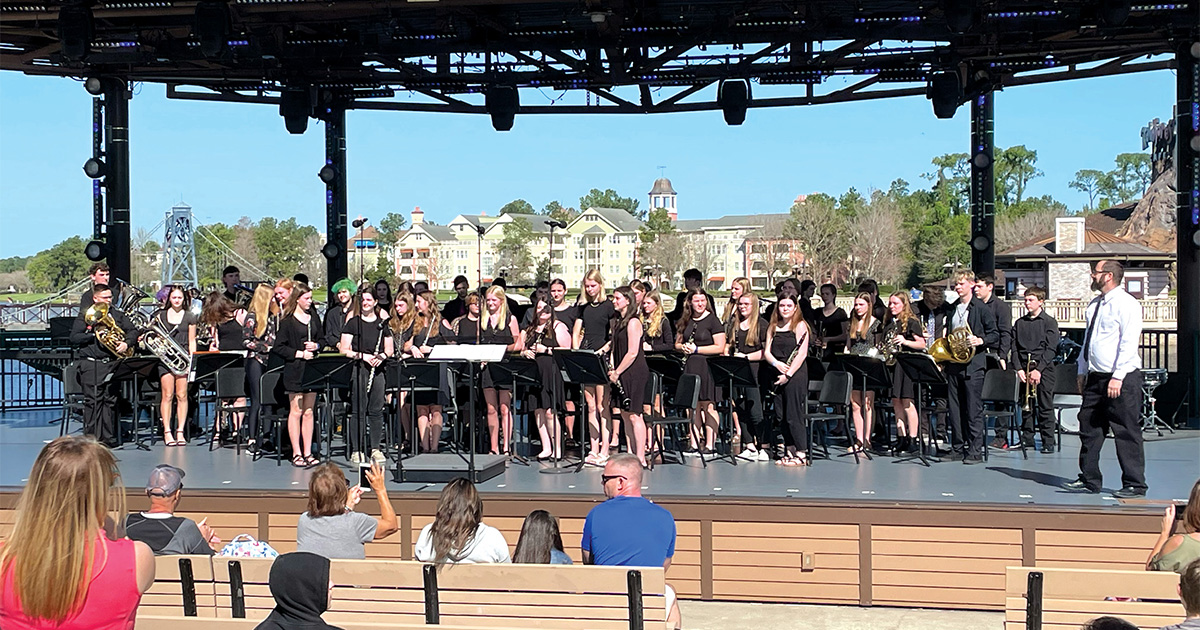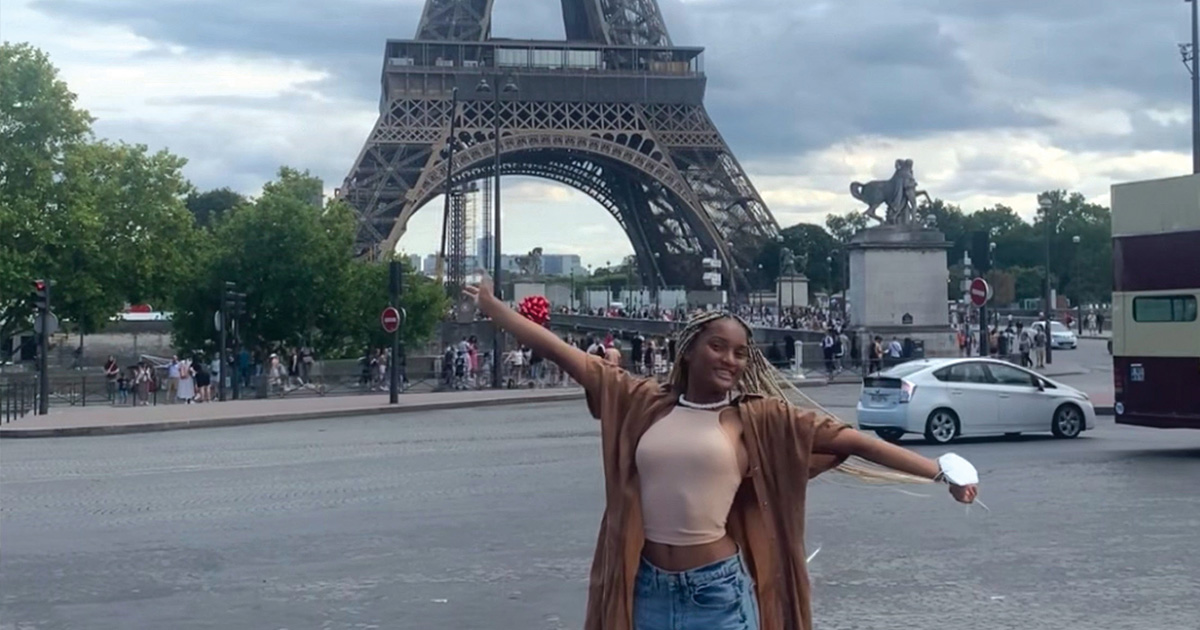After a delay due to the COVID-19 pandemic, the formal dedication of The Dwight D. Eisenhower Memorial in Washington, D.C., took place Thursday, September 17, 2020.
The Memorial, commissioned by Congress in 1999, honors the legacy of the World War II Supreme Allied Commander and nation’s 34th President. Emceed by Bret Baier, the early evening ceremony featured an address by Sen. Pat Roberts of Kansas (chairman of the Eisenhower Memorial Commission), recorded remarks by former Secretary of State Condoleezza Rice, and performances and appearances by the 101st Airborne Honor Guard, “The President’s Own” United States Marine Band and Voices of Service.
“I am proud to honor Kansas’ favorite son with the unveiling of the Dwight D. Eisenhower Memorial. This memorial pays tribute to Ike’s historic leadership as both Supreme Allied Commander and the 34th President of the United States, who hailed from Abilene, Kansas,” said Sen. Roberts, chairman of the Eisenhower Memorial Commission. “The Eisenhower Memorial not only commemorates the life and legacy of an extraordinary man; it also stands as a symbol for all generations of the promise of America and what our values make possible here and around the world.”
Designed by world-renowned architect Frank Gehry, the memorial encapsulates Eisenhower’s legacy in a newly created 4-acre urban park at the base of Capitol Hill, adjacent to the National Mall and across the street from the Smithsonian National Air and Space Museum. Gehry’s unique vision is a grand new civic space in the heart of the nation’s capital—an ideal student travel destination.
The Memorial features three bronze sculptures of Eisenhower by sculptor Sergey Eylanbekov, stone bas relief images and inscription panels with words from notable Eisenhower addresses. Framing the entire park and Memorial is a first-of-its-kind stainless steel woven tapestry by artist Tomas Osinski, which depicts the cliffs at Pointe du Hoc on the Normandy coastline in peacetime.
“We are thrilled that the Memorial is opening to the public, so that generations of future visitors can learn about, remember and pay tribute to the man who helped shape America and the world through his extraordinary leadership,” said Victoria Tigwell, deputy executive director of the Eisenhower Memorial Commission.
As Commander of the Allied Expeditionary Force in World War II, Eisenhower led the invasion of Normandy, a dramatic turning point in the war. While he is perhaps best known globally for his role in defeating the Nazis, Eisenhower served two terms as President of the United States during a pivotal time in history. His post-war leadership transformed America through a commitment to education, transportation and exploration. His foreign policy ultimately led to the collapse of the Soviet domination of Eastern Europe.
“As decades have passed, historians increasingly have recognized and valued the significance of Eisenhower’s presidency,” said Tigwell. “Truly great Presidents have a vision that lasts well beyond their four- or eight-year terms, and Eisenhower’s vision is evident still today. We hope the Memorial encourages visitors to reflect on the critical role he played in American and world history.”
Gehry’s design is a combination of grand architectural elements, sculpture, and green space, which highlights Eisenhower from his humble childhood in America’s heartland, to his decisive role as Supreme Commander of the Allied Expeditionary Force in World War II and his two terms as President.
Learn more at The Dwight D. Eisenhower Memorial.
Courtesy of Teach & Travel.
Photo courtesy of Dwight D. Eisenhower Memorial Commission.




